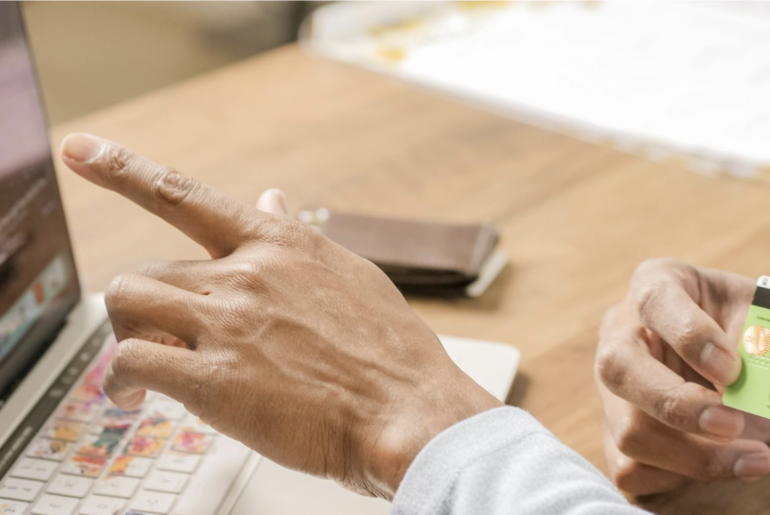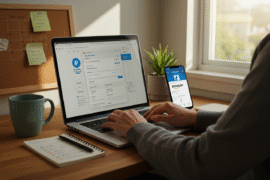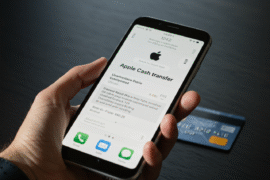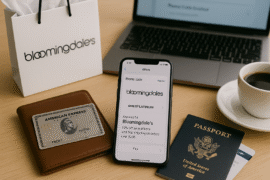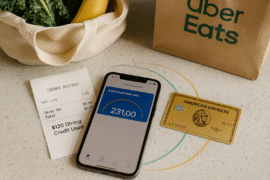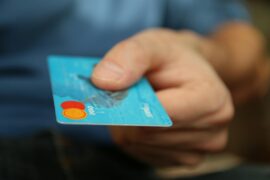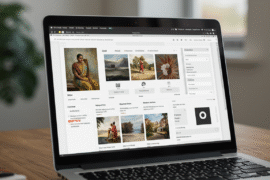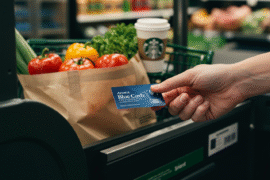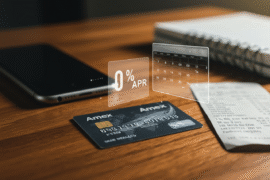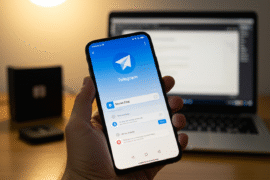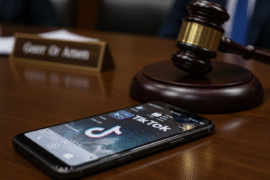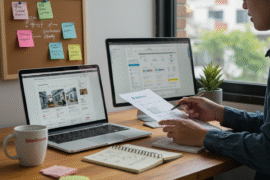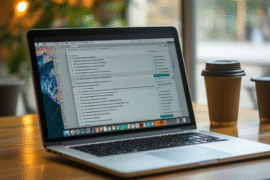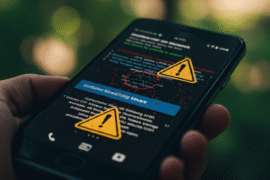This article may contain references to products or services from one or more of our advertisers or partners. We may receive compensation when you click on links to those products or services. Nonetheless, our opinions are our own.
The information presented in this article is accurate to the best of our knowledge at the time of publication. However, information is subject to change, and no guarantees are made about the continued accuracy or completeness of this content after its publication date.
These days, managing your money online is practically a way of life for so many of us. A survey found that 71% of Americans would rather handle their banking through apps or websites than step foot in a branch. It’s easy to see why—convenience is king. Who wouldn’t want to check their balance, pay a bill, or transfer cash without leaving the couch or waiting in line? The freedom to bank on your own schedule, whether it’s late at night or during a quick lunch break, has made digital tools a go-to for millions.
But with all this reliance on the digital world, you’ve probably wondered: is online banking safe to use? Honestly, it can be, as long as you’re smart about it. Even though banks spend a lot on security steps for our safety, your habits also play an important part in protecting your finances and private data. This article offers practical tips to ensure your online banking experience remains secure and worry-free.
Lock It Down with a Solid Password
Let’s start with the basics: your password. It’s your first line of defense, so make it count. Skip the obvious stuff like your birthday or “password123”—those are like handing over the keys to a thief. Instead, mix things up with uppercase letters, lowercase, numbers, and a few special characters. Think of something like turning “I enjoy hiking” into “1Enj0yH!k1ng”—it’s got a personal twist but looks like gibberish to anyone else.
And don’t reuse that password anywhere else. Reusing passwords across multiple sites increases the risk of a breach. A hacker can possibly get access to your bank account if they manage to break your email or social media accounts, as these might have the same login details. Think about using a password manager for producing and keeping complex passwords safe, thus you will not have to depend only on memory.
Add an Extra Step with Two-Factor Authentication
Two-factor authentication, or 2FA, is like putting a deadbolt on your digital door. You’ll need your password plus something else—like a code texted to your phone—to get in. So even if someone snags your password, they’re stuck without that second piece.
Most banks offer 2FA as an option, though it might not be enabled by default. Head to your account settings and turn it on. Opt for authentication apps over text messages if possible—those can sometimes get intercepted. It’s a quick setup that makes a huge difference in keeping your account tight.
Think Twice About Public Wi-Fi
Public Wi-Fi is a lifesaver when you’re out and about, but it’s not your friend for banking. Those networks at cafes or airports? They’re often wide open for anyone to peek at what you’re doing. Logging into your bank there is like flashing your cash in a crowd—don’t risk it unless you have to.
If you must use public Wi-Fi, use a VPN. It’s a tool that scrambles your connection so no one can spy on you. Pick a good one, turn it on before you log in, and you’re golden. It’s a simple way to keep your info under wraps, wherever you’re sipping your latte.
Voted "Best Overall Budgeting App" by Forbes and WSJ
Monarch Money helps you budget, track spending, set goals, and plan your financial future—all in one app.
Get 50% OFF your first year with code MONARCHVIP
Stay on Top of Updates
Your phone or laptop is your gateway to online banking, so don’t let it become a weak link. Software updates often include patches for vulnerabilities that cybercriminals could exploit. Turn on auto-updates if you’re not into checking all the time.
Don’t sleep on your banking app either. When developers push out a new version, it’s often to patch up something risky. An old app could leave you exposed, so hit that update button when it pops up. It’s an easy way to stay ahead of trouble.
Don’t Take the Phishing Bait
Phishing remains a top threat to online banking security. These scams often come disguised as legitimate emails, texts, or calls claiming to be from your bank. They might urge you to click a link or provide personal details to “verify” your account. Don’t fall for it—banks rarely ask for sensitive information this way.
Skip the links and head straight to your bank’s site or app yourself. If you’re not sure, call them up—but use the number from their official page, not some random one in the message. If it feels fishy, trust that gut feeling and double-check.
Monitor Your Accounts Regularly
Checking your account regularly is like keeping tabs on your wallet. Pop in once a week—or even daily if you’re extra cautious—and scan your transactions. Spot anything weird, like a tiny withdrawal you didn’t make? That could be a red flag.
Turn on alerts if your bank offers them. Getting a ping for every move—like a login or a purchase—means you’ll know right away if something’s off. These real-time updates let you spot and report suspicious activity quickly, limiting potential damage. The sooner you act, the better your chances of resolving issues smoothly.
Log Out and Lock Your Devices
It’s tempting to stay logged in for convenience, but don’t—especially on a shared computer or phone that’s not yours. Walking away logged in is like leaving your front door open. Get in the habit of signing out every time, even at home.
And lock your device too—with a PIN, password, or even your fingerprint. If it gets lost or swiped, that extra step keeps strangers out of your banking app. These small actions create hurdles for would-be thieves, keeping your accounts out of reach.
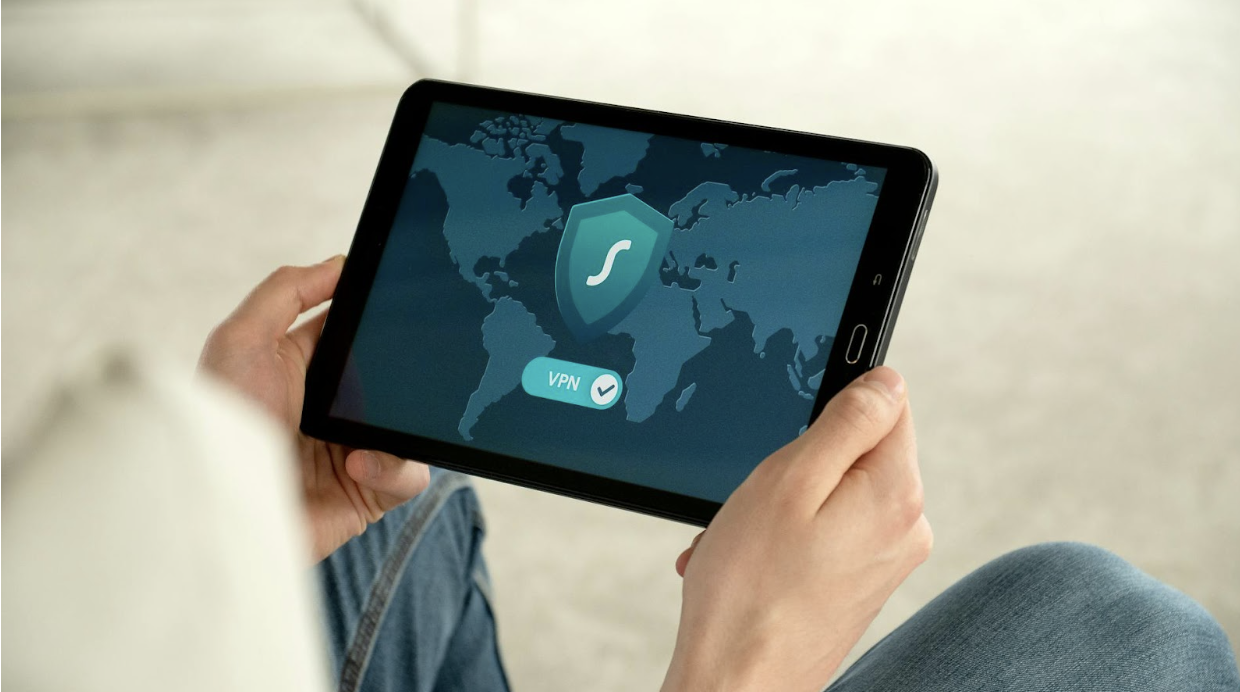
Wrapping It Up
Online banking is a game-changer, no doubt, but it’s not foolproof. Stick to these tips—strong passwords, 2FA, dodging sketchy Wi-Fi, staying updated, avoiding scams, watching your account, and locking things down—and you’ll keep the risks in check. Your bank’s got your back, but your own habits seal the deal. Stay sharp, and you can bank online with peace of mind.

Reviewed and edited by Albert Fang.
See a typo or want to suggest an edit/revision to the content? Use the contact us form to provide feedback.
At FangWallet, we value editorial integrity and open collaboration in curating quality content for readers to enjoy. Much appreciated for the assist.
Did you like our article and find it insightful? We encourage sharing the article link with family and friends to benefit as well - better yet, sharing on social media. Thank you for the support! 🍉
Article Title: Tips for Ensuring a Safe and Secure Online Banking Experience
https://fangwallet.com/2025/03/03/tips-for-ensuring-a-safe-and-secure-online-banking-experience/The FangWallet Promise
FangWallet is an editorially independent resource - founded on breaking down challenging financial concepts for anyone to understand since 2014. While we adhere to editorial integrity, note that this post may contain references to products from our partners.
The FangWallet promise is always to have your best interest in mind and be transparent and honest about the financial picture.
Become an Insider

Subscribe to get a free daily budget planner printable to help get your money on track!
Make passive money the right way. No spam.
Editorial Disclaimer: The editorial content on this page is not provided by any of the companies mentioned. The opinions expressed here are the author's alone.
The content of this website is for informational purposes only and does not represent investment advice, or an offer or solicitation to buy or sell any security, investment, or product. Investors are encouraged to do their own due diligence, and, if necessary, consult professional advising before making any investment decisions. Investing involves a high degree of risk, and financial losses may occur including the potential loss of principal.
Source Citation References:
+ Inspo
There are no additional citations or references to note for this article at this time.
